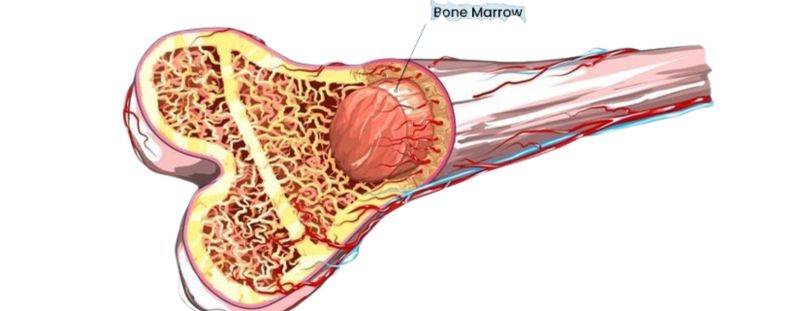Bone Marrow Transplant in India
A Bone Marrow Transplant In India (BMT) replaces damaged or non-functioning bone marrow with healthy blood-forming stem cells. Often called a stem cell transplant, this procedure is crucial for individuals whose bone marrow cannot produce enough healthy blood cells. There are two types of bone marrow transplants: autologous, where the patient’s own cells are used, and allogeneic, where cells come from a donor. India offers various options for these procedures, including umbilical cord blood transplants, all at significantly lower costs compared to countries like the United States.
Importance of Bone Marrow
Bone marrow plays a vital role in the body’s immune system. It produces white blood cells, red blood cells, and platelets. When bone marrow is damaged, the immune response weakens, leaving the body susceptible to infections and health complications. Various conditions can impair bone marrow function, including genetic disorders, cancer, and damage from radiation or chemotherapy.
Doctors often recommend a bone marrow transplant for patients with specific conditions, such as:
- Aplastic Anemia: This condition occurs when the bone marrow stops producing enough blood cells.
- Leukemia: This cancer affects the blood and bone marrow.
- Lymphoma: This cancer originates in the lymphatic system.
- Multiple Myeloma: This type of cancer affects plasma cells in the bone marrow.
- Thalassemia: A genetic blood disorder that causes abnormal hemoglobin production.
Cost of Bone Marrow Transplant in India
The average cost of a bone marrow transplant in India ranges from USD $18,000 to $20,000. This pricing makes India an attractive option for international patients seeking treatment. Specific hospitals may charge different rates based on their services and reputation.
Several factors influence treatment costs, including the expertise of the medical team, the patient’s condition, hospitalization duration, and post-operative care requirements.
Risks Associated with Bone Marrow Transplant
While bone marrow transplants can save lives, they also carry certain risks. The patient’s age, overall health, and the underlying condition influence these risks. Additionally, compatibility between the donor and recipient plays a crucial role in the procedure’s success.
Potential risks include:
- Minor complications: These may involve nausea, headaches, fatigue, and low blood pressure.
- Infections: A weakened immune system increases vulnerability to infections.
- Graft-versus-host disease (GVHD): This condition occurs when donor cells attack the recipient’s body.
- Severe complications: Hospitalization may be necessary for serious, potentially life-threatening issues.
Conclusion
A bone marrow transplant can be a vital procedure for patients suffering from serious blood disorders or malignancies. With India’s advanced healthcare system, skilled medical professionals, and cost-effective treatment options, it has become a preferred destination for many seeking bone marrow transplants. If you or a loved one is considering this procedure, consult with a specialized healthcare provider. They can discuss eligibility, potential outcomes, and the overall treatment process.
By understanding the significance, costs, and risks associated with bone marrow transplants, patients can make informed decisions about their healthcare options in India.





